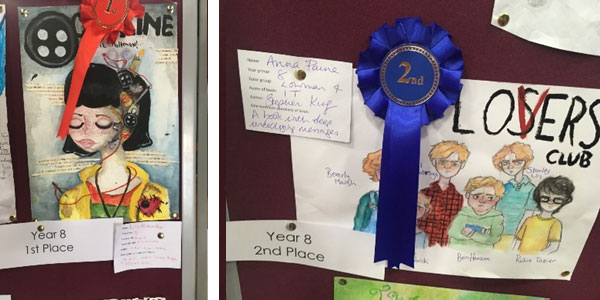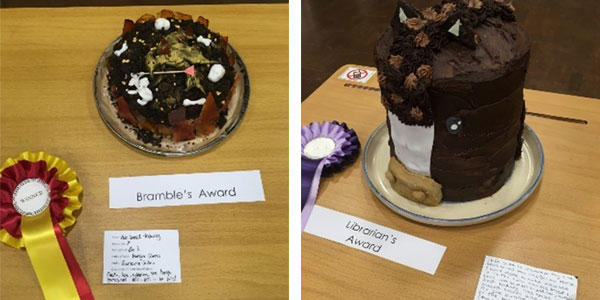Curriculum menu
Whole School Literacy
Literacy is a priority across all departments and subjects at Tiverton High School. We are all readers at THS, and know that reading is a fundamental skill as well as a great pleasure. Being able to read competently and confidently provides access to the complete secondary curriculum and beyond, and can foster life-long habits of reading for enjoyment.
Writing is another key still that we know is vital across the curriculum. We dedicate substantial time in every lesson to writing: in every subject, students write independently for 20 minutes at least once a week. This ensures all students have multiple opportunities to write at length, improving their ability to write coherently and in depth. We also put great emphasis on students use of vocabulary, as we know that recognising and using a wide variety of vocabulary allows students to express themselves clearly and precisely, and engage with the huge range of texts they will encounter both in their education and the wider world.
Word of the Week
Word of the Week is taken each week from our THS Tier 2 100 Word List. This list has been specifically compiled for THS, and is a collection of 100 words that are commonly used in writing (especially academic writing), but not in speech. They are words that are not subject specific (for example, erupt for geography or sculpture for art). This means they are words that students may frequently encounter when reading, but may not otherwise be explicitly taught.
Students are shown a PowerPoint in tutor at the start of the week, which features the word, a closely related image, and a definition and synonyms to help their understanding. The word is then displayed in classrooms around the school to increase students’ exposure to the word. Positive points are awarded to students who use the word that week.
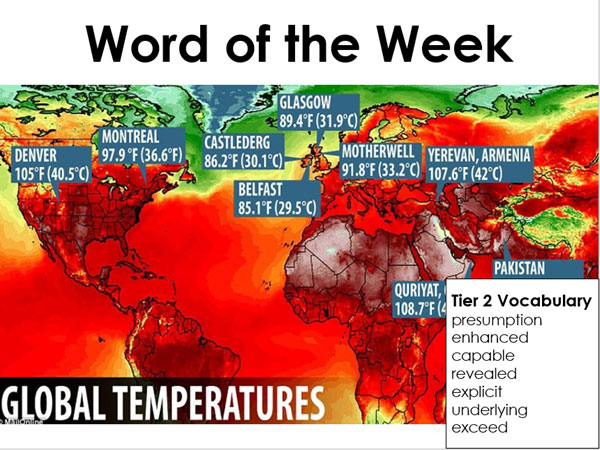
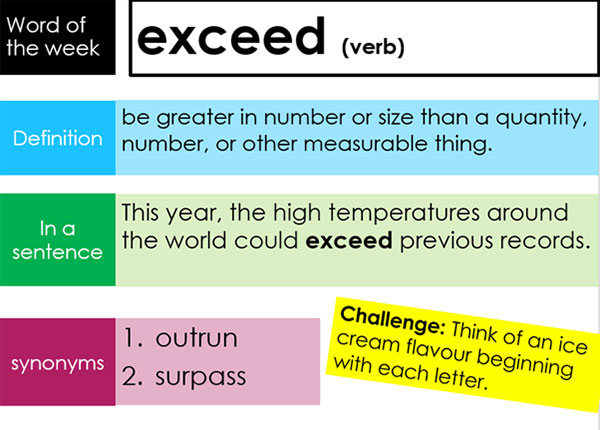
Great Expectations of Writing
The THS Great Expectations of Writings are displayed around school and in rooms. These give clear guidelines to students of the quality of work needed in their writing.
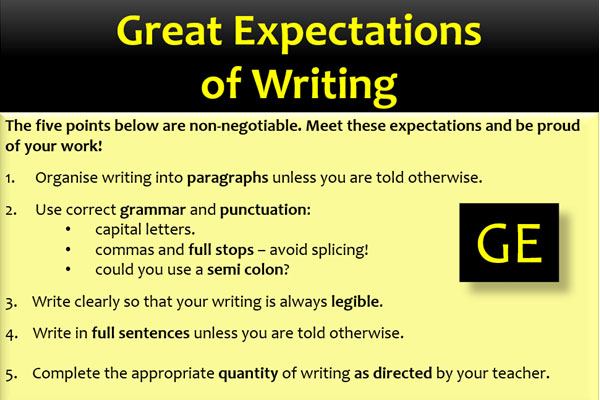
Marking for Literacy
All teachers in all subjects use the marking for literacy symbols below. These allow students to improve on basic errors, focusing on punctuation at the end of sentences and full stops, as work scrutinises have shown this is where most students need to make progress.
We know that clarity of expression can be a huge barrier to students when writing, especially under timed conditions. The wiggly line encourages students to review and improve their own work, and identify if they have used the wrong word, changed tense, missed words or lacked clarity in another way.
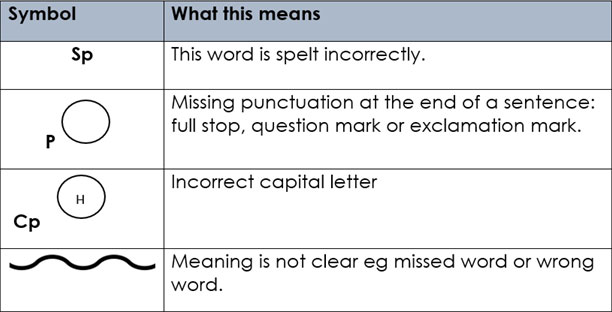
How do we support staff with whole school literacy?
- Staff are given annual CPD around Literacy at the start of the year, setting out new goals and initiatives for the coming months.
- Regular staff briefing updates staff and provides further training.
- Training is provided for new teachers to the school and trainee teachers to ensure all staff are clear about THS literacy policies and priorities.
DEAR
DEAR takes place once a week on a rotating timetable for years 7-10. All students and staff read their own personal reading books for 15 minutes at the start of a lesson. Feedback from students has been really positive, with many asking for the session to be extended!
Whole School Tutorial Reading
Our whole school tutorial reading programme allows students to read a range of exciting and challenging texts twice a week in tutor time. Years 7, 8 and 9 read a selection of fiction and non fiction. This shared reading experience provides students with valuable exposer to a carefully selected variety of genres and time periods, reading books that they may not read independently. Years 10 and 11 read up to date news articles from The Day, a website that provides age appropriate daily news. Our aim for this new addition is to increase students’ awareness of the wider world and current affairs, while continuing to expose them to high quality texts.
Reading Intervention
Targeted reading intervention is provided throughout the year to students with a reading age of 10 or below.
Reading Assemblies
Students have enjoyed competitive reading assemblies given by staff from a variety of subjects, where students voted for their favourite reader. These assemblies have included PE teachers re-enacting Romeo and Juliet, English teachers providing a memorable re-imagining for Patrick Ness’ Knife of Never Letting Go, and Humanities teachers going head to head in a reading rap battle!
Literary Design Show
The Literary Design Show gives students the opportunity to combine their reading skills with their creative side! All entries must be based on a book of their choice, and include a summary of the book and explanation of how the book links to their creation. Entries have included paintings, drawings, cakes, wooden models and jars of spells!
